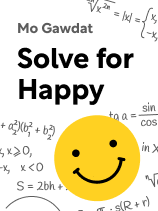

This article is an excerpt from the Shortform book guide to "Solve for Happy" by Mo Gawdat. Shortform has the world's best summaries and analyses of books you should be reading.
Like this article? Sign up for a free trial here.
How do memories impact the here and now? How can you minimize the distortions?
Humans don’t remember everything exactly the way it happened. While the past is the past, your perception of it is now—and it’s affecting the present. Your distorted memories can cause you to see the present inaccurately.
Continue reading to understand how this works and learn what you can do about it.
Distorted Memories
Gawdat argues that memories color our perceptions by distorting the lens through which we perceive reality. After all, our memories are merely what we think happened, so they’re often inaccurate guides to the past. In turn, they lead us to misrepresent the present by projecting false conceptions of the past onto it.
(Shortform note: Experts agree that we have distorted memories. In one study, researchers found that they could even instill false memories into participants, who recalled the pseudo-memory just as confidently as they recalled real memories. By reading participants several real childhood stories relayed by relatives, alongside one false account of participants being lost in a mall, a majority of participants claimed to vividly remember the false episode.)
For instance, those afraid of dogs might misremember an innocuous childhood encounter with a dog as aggressive and scary. Consequently, they’ll misinterpret encounters with dogs, mistakenly perceiving harmless dogs as aggressive predators. Since these memories negatively shape our perception of the present, they impede attempts to solve the happiness formula.
To prevent faulty memories from infiltrating our present experience, Gawdat recommends noticing when we use past-tense verbs, like “heard,” “saw,” and “felt.” These verbs signal that we’re relying on our memories, so monitoring them can ensure that our memories aren’t shaping our present perceptions.
(Shortform note: Although Gawdat emphasizes the negative influence of memories on our perceptions, research suggests that episodic memories can improve our perceptual capacities, which helps us distinguish between various objects in our visual field. In particular, replaying episodic memories refines our brain’s process of sorting perceptions into categories, like, “faces,” “scenery,” and “animals.”)

———End of Preview———
Like what you just read? Read the rest of the world's best book summary and analysis of Mo Gawdat's "Solve for Happy" at Shortform.
Here's what you'll find in our full Solve for Happy summary:
- The six misconceptions that cause us to suffer
- How to remove the seven weaknesses that hinder your happiness
- The five pillars to becoming permanently happy






